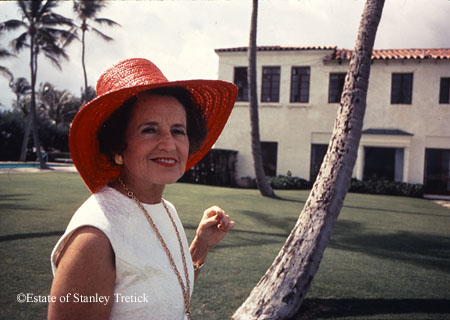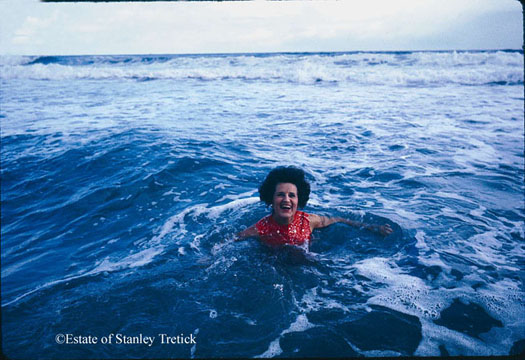Posts Tagged ‘Kennedy family’
Rose Kennedy: The Life and Times of a Political Matriarch
by Kitty Kelley
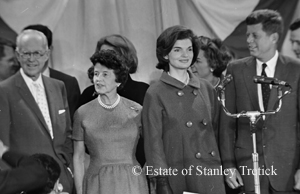 Anyone who has followed the Kennedys knows the bar is high for books on the subject. Having been inundated for the past 50 years with hundreds of biographies and memoirs and profiles about the spellbinding mystique of John Fitzgerald Kennedy, his family and his thousand days as the country’s first Irish-Catholic president, we expect each publication to bring something new and fresh to add to our understanding of the family that refashioned politics in the 20th century.
Anyone who has followed the Kennedys knows the bar is high for books on the subject. Having been inundated for the past 50 years with hundreds of biographies and memoirs and profiles about the spellbinding mystique of John Fitzgerald Kennedy, his family and his thousand days as the country’s first Irish-Catholic president, we expect each publication to bring something new and fresh to add to our understanding of the family that refashioned politics in the 20th century.
Serious historians (Arthur Schlesinger, Jr., William Manchester, James MacGregor Burns, Nigel Hamilton), journalists (Seymour Hersh, Jack Newfield, Warren Rogers), conspiracy theorists (Jim Garrison), commercial clip-and-pasters (Laurence Leamer, Christopher Anderson) and friends (Paul “Red” Fay, Benjamin C. Bradlee) have tried to capture the firefly magic of the Kennedys, while antagonists (Victor Lasky, Ralph de Taledano) have tried to puncture their myth.
So now comes Barbara A. Perry with Rose Kennedy: The Life and Times of a Political Matriarch, who promises to deliver “the definitive biography” of the woman whose iron-fisted image-making produced the mystique that continues to endure. When the John F. Kennedy Library released the papers of the president’s mother (300 boxes) in 2006, Perry, a senior fellow in presidential oral history at the University of Virginia’s Miller Center in Charlottesville, was first in line, but, alas, Rose had no secrets beyond the few she revealed in her 1974 memoir, Times to Remember. As a biographer Perry was challenged. After six years of research and writing, she bowed to the obvious: With nothing new, she went for nuance. Her text is well written and her bibliography shows research, but there is no gold in the mine.
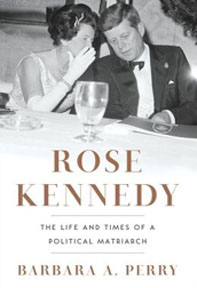 Her book cover, though, is perfect, absolutely perfect, because it captures the essence of Rose Fitzgerald Kennedy. The black-and-white photograph shows a woman who later died at the age of 104 after living her life by the black-and-white strictures of the Catholic Church, pre-Vatican II. Still glamorous at the age of 73, she is sitting next to the handsome president at a White House state dinner in 1963. She is acting as her son’s hostess because the first lady is away on one of her many vacations, similar to the ones Rose took for six to eight weeks at a time to get away from the clamor of her large family, and possibly, according to her biographer, as a means of Church-approved birth control. Rose is wearing the Molyneux gown she wore when she was 48 and her husband, Joseph P. Kennedy, was presented to the king and queen of England as the U.S. ambassador to the Court of St. James. That was the crowning glory of Rose’s life: To be accepted by British royalty was beyond the biggest dreams of a little girl from Dorchester, Mass.
Her book cover, though, is perfect, absolutely perfect, because it captures the essence of Rose Fitzgerald Kennedy. The black-and-white photograph shows a woman who later died at the age of 104 after living her life by the black-and-white strictures of the Catholic Church, pre-Vatican II. Still glamorous at the age of 73, she is sitting next to the handsome president at a White House state dinner in 1963. She is acting as her son’s hostess because the first lady is away on one of her many vacations, similar to the ones Rose took for six to eight weeks at a time to get away from the clamor of her large family, and possibly, according to her biographer, as a means of Church-approved birth control. Rose is wearing the Molyneux gown she wore when she was 48 and her husband, Joseph P. Kennedy, was presented to the king and queen of England as the U.S. ambassador to the Court of St. James. That was the crowning glory of Rose’s life: To be accepted by British royalty was beyond the biggest dreams of a little girl from Dorchester, Mass.
Bejeweled with two diamond clips in her hair, diamonds dripping from her ears, a triple strand of pearls the size of grapes circling her unlined neck and a bracelet of diamonds wrapped around her arm, which is encased in a long white kid-leather glove, Rose is whispering in her son’s ear. 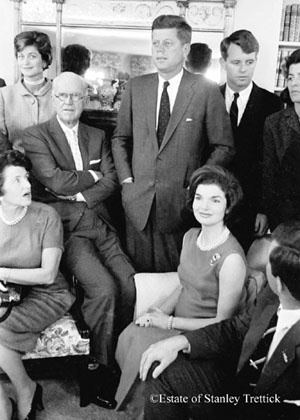 Ever the canny pol, she covers her mouth so the photographer cannot catch a candid shot. (“I do not like candid pictures,” she said. “They are so unattractive.”)
Ever the canny pol, she covers her mouth so the photographer cannot catch a candid shot. (“I do not like candid pictures,” she said. “They are so unattractive.”)
Oh, did I mention that the Molyneux gown was sleeveless? This is a detail Rose would want to have emphasized because she prided herself on her petite figure and frequently said that after having nine children she could still wear a size 8. Her frenetic exercise routine of swimming in the ocean every day, playing golf, walking miles, eating sparingly and rarely drinking had left her sleek and svelte with tanned, taut arms.
Appearances ruled Rose, and nothing mattered to her as much as how one looked — in person and in pictures. She made her children line up for daily inspections so she could see if their shoes were shined and their buttons attached. She saw each child as a reflection of herself and of the family name her husband was making famous on Wall Street and in Hollywood, so she strove for perfection, demanding it of herself and everyone around her. A martinet mother, she insisted her children brush their teeth three times a day and say their prayers every night. They were instructed to make meals on time or go without eating, and en route to the dining room they were required to check the bulletin board for the topics of current affairs that were to be discussed at dinner. Rose was the parent in charge of their childhood. When they became young adults her husband took over, but as one daughter said, “Dad gave us many lovely things but mother gave us our character.”
Despite her foibles and her husband’s philandering Rose relied on her strong religious faith to survive the worst tragedies of her life, and she managed to produce an extraordinary family of sons and daughters, who cared for each other, supported each other and remained close throughout their lives — and that is a mother’s finest legacy. Rose Fitzgerald Kennedy is an admirable subject but one that left her admiring biographer empty-handed.
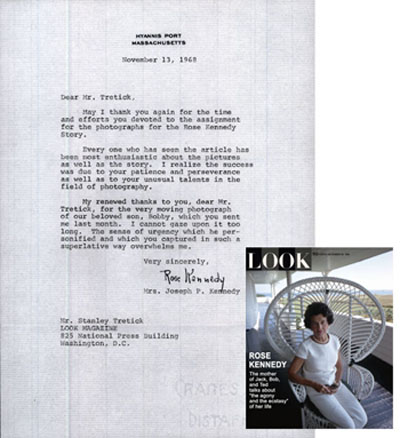 Kitty Kelley’s seven biographies include Jackie Oh! (1978), the first book to reveal that the former first lady suffered from depression and was treated with electroshock therapy; it also reported for the first time that Rosemary Kennedy survived the mangled lobotomy her father had ordered in hopes of reversing her mental retardation. In 1988, People published Kelley’s story detailing President Kennedy’s affair with a woman who carried his messages to her other lover, mobster Sam Giancana.
Kitty Kelley’s seven biographies include Jackie Oh! (1978), the first book to reveal that the former first lady suffered from depression and was treated with electroshock therapy; it also reported for the first time that Rosemary Kennedy survived the mangled lobotomy her father had ordered in hopes of reversing her mental retardation. In 1988, People published Kelley’s story detailing President Kennedy’s affair with a woman who carried his messages to her other lover, mobster Sam Giancana.
Cross-posted with Washington Independent Review of Books.
Photos from Capturing Camelot ©Estate of Stanley Tretick, used with permission.
Obama and the Legacy of Camelot
by Kitty Kelley
When Caroline Kennedy endorsed Barak Obama in 2008 as her father’s rightful heir she laid upon him the mantle of Camelot, and the enduring mystique of John F. Kennedy, who, according to polls, continues to be America’s most beloved president. Comparisons between the 35th and 44th presidents have been inevitable, and while there are striking similarities between the two men, there are also distinguishing differences.
Both rose to the nation’s highest office as junior U.S. Senators with scant legislative achievements to their credit. The man from Massachusetts served three terms in the House of Representatives before he won his Senate seat in 1952 and began campaigning for national office, running for Vice President in 1956 and for President in 1960. Obama, a state legislator in Illinois for seven years, began his run for the White House shortly after being elected to the Senate. Both men broke the barriers of bigotry to reach the highest office in the land–Kennedy as the first Roman Catholic; Obama as the first African American.
Erudite Ivy Leaguers, each seemed blessed with the gift of prose. Kennedy wrote three books, and won a Pulitzer Prize for Profiles in Courage; Obama made millions writing his best-selling memoir, Dreams from My Father. As a Boston scion and Harvard graduate, JFK. always smarted at being rejected for a seat on the Harvard Board of Overseers; Obama left Harvard with the distinction of having been the first person of color to be elected president of the Harvard Law Review.
 Both men possessed extraordinary talents for oratory and inspired their generations with the poetry of hope–“the thing,” Emily Dickinson described, “with feathers that perches in the soul.” Their messages resounded for a nation grown restless after eight years of a Republican administration. Each man came to the presidency with their party in control of Congress, and each used that power to effect sweeping change. Kennedy introduced the most comprehensive and far-reaching civil rights bill, which was not passed on his watch, but became law under his successor. Obama signed the Affordable Care Act of 2010 which reformed health care to provide insurance for all Americans. Kennedy ordered federal departments and agencies to end discrimination against women in appointments and promotions; Obama signed the Lilly Ledbetter Act to provide fair pay in the work place. In addition, he succeeded in getting a measure passed to end discrimination against gays in the military.
Both men possessed extraordinary talents for oratory and inspired their generations with the poetry of hope–“the thing,” Emily Dickinson described, “with feathers that perches in the soul.” Their messages resounded for a nation grown restless after eight years of a Republican administration. Each man came to the presidency with their party in control of Congress, and each used that power to effect sweeping change. Kennedy introduced the most comprehensive and far-reaching civil rights bill, which was not passed on his watch, but became law under his successor. Obama signed the Affordable Care Act of 2010 which reformed health care to provide insurance for all Americans. Kennedy ordered federal departments and agencies to end discrimination against women in appointments and promotions; Obama signed the Lilly Ledbetter Act to provide fair pay in the work place. In addition, he succeeded in getting a measure passed to end discrimination against gays in the military.
Both Kennedy and Obama exuded a dash of glamour in their roles as Commander-in-Chief and became the darlings of Hollywood. As President, each brought to the White House a fashionable and accomplished First Lady, two adorable young children, and scene-stealing pets. Yet as beloved as each became, both men stirred ferocious passions and dangerous threats from extremists who accused them of treason.
As notable as their similarities are the differences which define and separate them. Kennedy grew up with immense wealth and the high expectations and powerful connections of his father, the former Ambassador to the Court of St. James, who was the 14th richest man in America in 1960, worth more than $400 million. Obama, a fatherless child, forged his way on the wings of a single working mother, who wandered the world and left her son to the loving care of her parents. As a young man he borrowed thousands of dollars to finance his education and was not able to repay his student loans until he was 43 years old.
Both elusive men, Kennedy and Obama cared mightily about their public image, not an insignificant concern for politicians. Kennedy, who worried about being portrayed as a rich man’s dilettante son, would not allow photographs inside Air Force One, saying it would look like a playboy’s luxury. Obama made sure cameras never caught him smoking cigarettes. Each understood the mesmerizing power of appearances and knew as the actor Melvyn Douglas says in the film Hud, “Little by little the look of the country changes just by looking at the men we admire.”
Both presidents tangled with corporate America and drew the ire of big business. Kennedy blasted the steel industry in 1962, saying their price increase was “unjustifiable and irresponsible.” Obama, a community organizer, championed the middle class, challenging Wall Street when he enacted financial regulatory reform, and demanded that the richest Americans to pay their full share of taxes.
Each had to find his way through military quagmires left by their predecessors. Kennedy was haunted by the Bay of Pigs invasion but carried the country through the Cuban Missile crisis. He later increased the number of US military advisers to South Vietnam to more than 16,000. Obama came to the White House determined to end the Iraq War which he did by December 2011. After sending 33,000 more U.S. soldiers to Afghanistan as part of a strategy to downsize the American commitment there, he vowed to end that war by 2014.
Politically, both men made judicious choices in their running mates, but Kennedy never gave Lyndon Baines Johnson the full partnership that Obama accorded to Joe Biden.
Kennedy left behind the Peace Corps, the Nuclear Test Ban Treaty and the promise of a man on the moon within the decade. Obama’s legacy must be left to the historians of tomorrow but at the dawn of his second term, following an inauguration that coincided with the fiftieth anniversary of President Kennedy’s last year in office, it is reassuring to believe that each man dedicated his presidency to setting the country’s course true north.
(Photo: President Barack Obama looks at a portrait of John F. Kennedy by Aaron Shikler, taken by official White House photographer Pete Souza)
Cross-posted from Huffington Post

